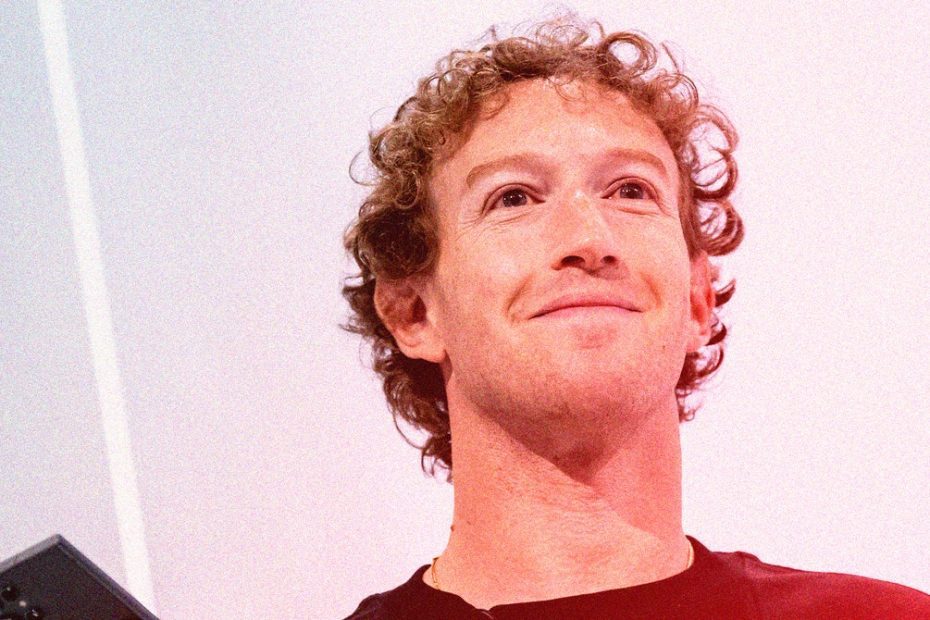Since Donald Trump After reclaiming the presidency on November 5, a parade of Silicon Valley celebrities has engaged in an unseemly groveling party, making pilgrimages to Mar-a-Lago, shoveling multimillion-dollar contributions to his inaugural fund and meddling in the editors of the publications they own in an apparent attempt to curry favor with the new leader. Yesterday, Meta founder and CEO Mark Zuckerberg said, “Hold my beer.”
In a five-minute Instagram video showing off his new curly hairstyle and a $900,000 Gruebal Forsey watch, Zuckerberg announced a series of drastic policy changes that could close the floodgates of misinformation and hate speech on Facebook, Threads and Instagram open. His rationale was a repetition of talking points that right-wing lawmakers, pundits and Trump himself have been harping on for years. And Zuckerberg wasn't coy about the timing, explicitly saying that the new political regime was a factor in his thinking: “The recent elections also feel like a cultural tipping point to reprioritize speech,” he said in the video.
According to Zuckerberg, the main driver for the change is the desire to encourage 'free speech'. Meta's social networks had become too extreme in restricting users' speech, he said, so the scope of the changes — which include ending Meta's multi-year partnerships with third-party fact-checking organizations and pulling back from efforts to curb the spread of hate speech reduce – is to make freedom ring, even if it means 'catching fewer bad things'.
But the message is in Zuckerberg's nomenclature. He described his company's (not entirely successful) efforts to prevent the promotion of toxic content as “censorship.” He has now adopted the same bad-faith characterizations of his employees' work as did the political right, which used it as a cudgel to force Facebook to allow ultraconservatives to promote things like targeted harassment and deliberate misinformation. In reality, Meta has every right to monitor its content in any way she wants. “Censorship” is something that governments do, and private companies are simply exercising their own right to free speech by deciding what content is appropriate for their users and advertisers.
Zuckerberg first indicated he might agree with the term in a simplistic letter he wrote to Republican Congressman Jim Jordan last August, saying the Biden administration wanted Meta to release certain content related to the Covid-19 pandemic would 'censor'. (The content survived, which actually illustrates that Facebook gets the power to shape free speech in the US, not the government.) But in his Instagram post yesterday, Zuckerberg embraced the term, using it as a synonym for the entire practice. of the content moderation itself. “We will drastically reduce the amount of censorship on our platforms,” he promised. An alternative reading could be: we're releasing the Dobermans!
In the same letter to Jordan, the former left-wing CEO vowed that he would no longer side with either political party. “My goal is to be neutral and not play a role in any way – or even appear to play a role,” he wrote. Now that Trump has been elected, that's all out the window. “It feels like we're in a new era now,” he said in yesterday's video. Apparently this is an era where private companies are changing their rules to ensure they are in sync with the party in power. In the past week alone, Zuckerberg replaced the outgoing Nick Clegg, the company's former president of global affairs, with Joel Kaplan, a former GOP operative and law clerk to the late Justice Anthony Scalia, who once urged Facebook to ignore disinformation during the 2016 election. Zuckerberg also asked Ultimate Fighting Championship president Dana White, an avid Trump supporter, to sit on Meta's board.
Another indication that there is a MAGA element to these changes is Zuckerberg's announcement that he is moving Meta's trust, safety, and content moderation teams from California to Texas. Again, he said out loud that the reasons for the geographic move were political: “I think this will help us build trust to do this work in places where there are fewer concerns about the biases of our teams.” Hello, Mark? This move simply anchors Meta's content arbiters in a location of potential different prejudice. It's also a striking statement that Zuckerberg himself might view California – Trump's kryptonite – as a less palatable place to work than deep-red Texas.

